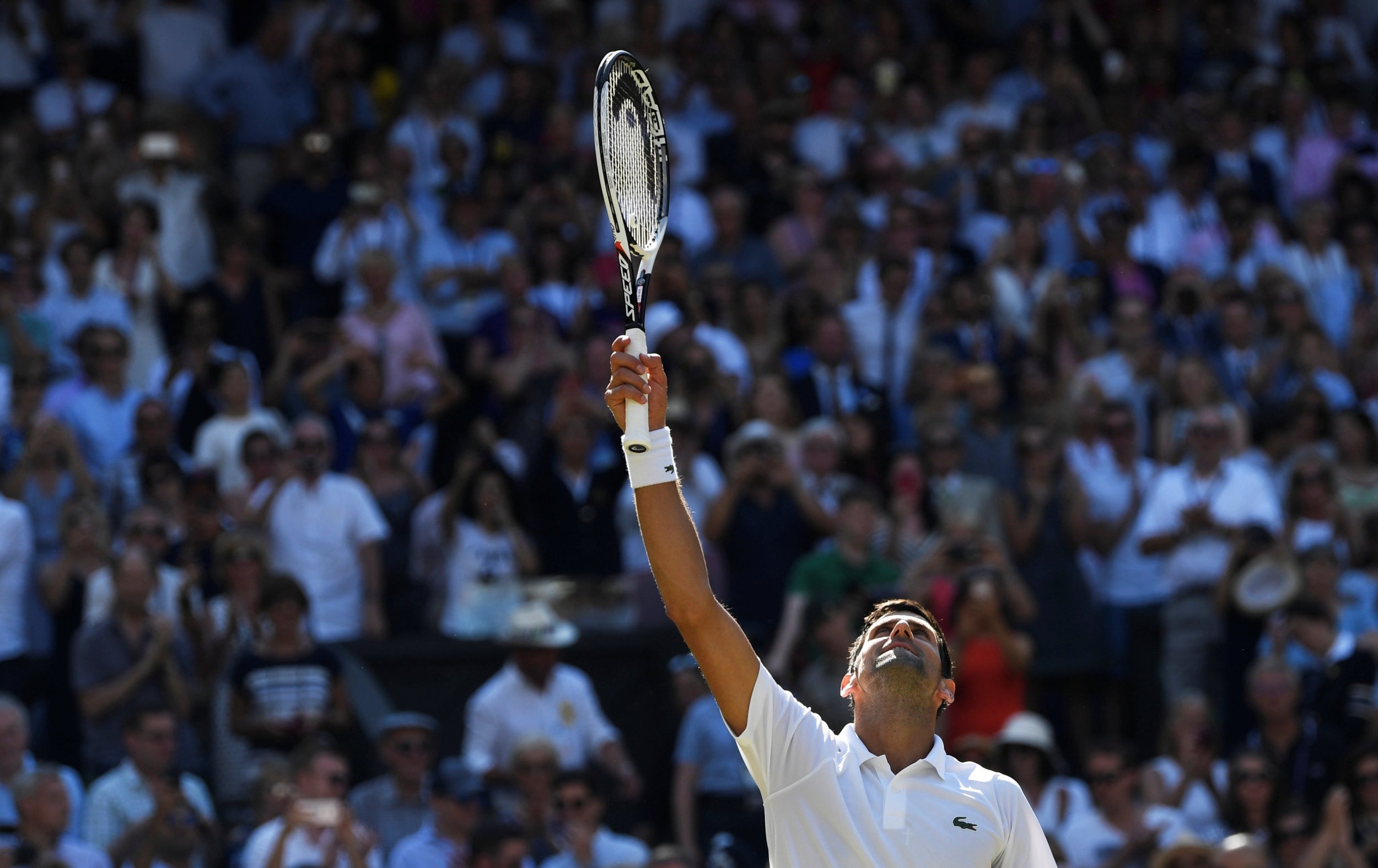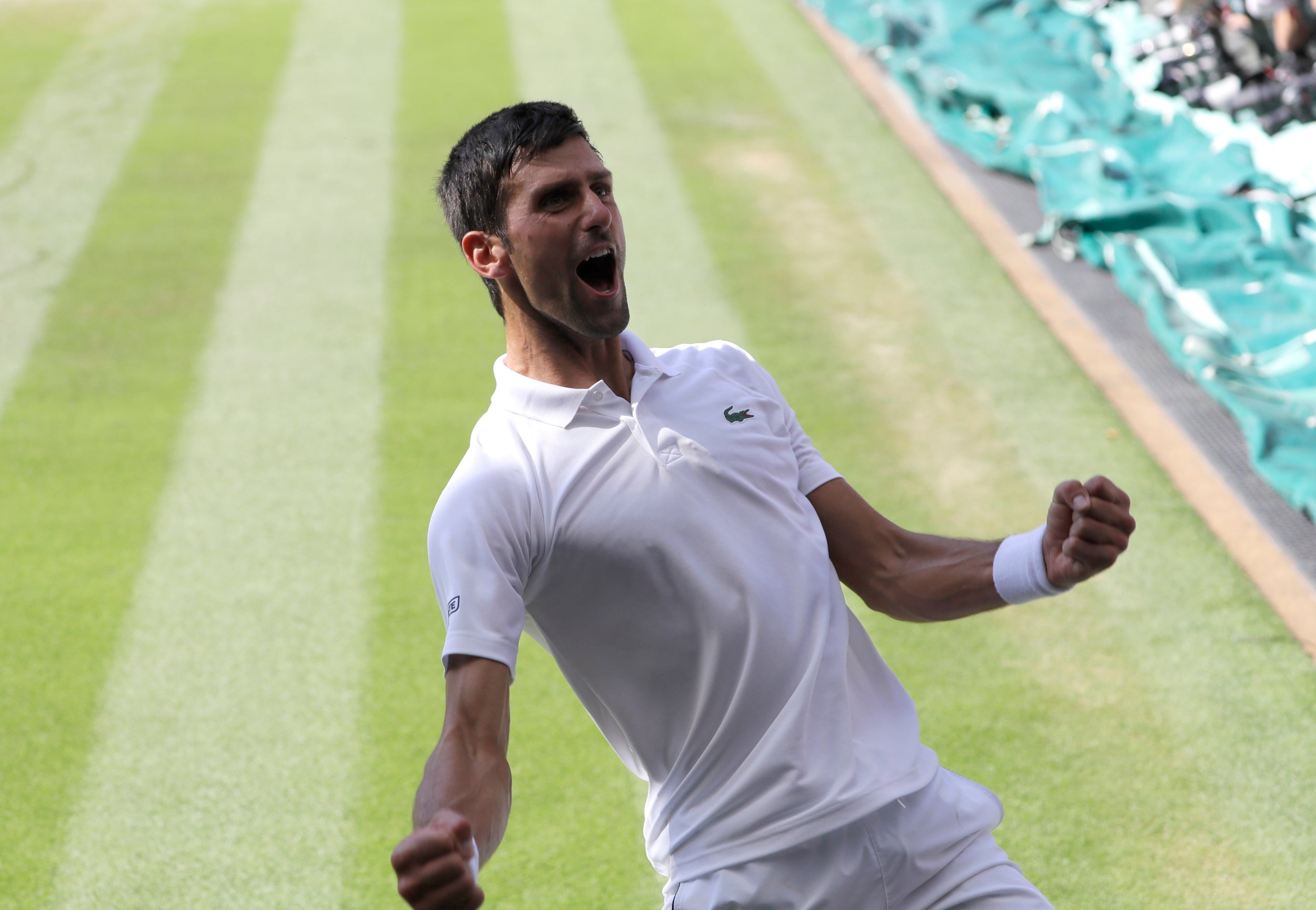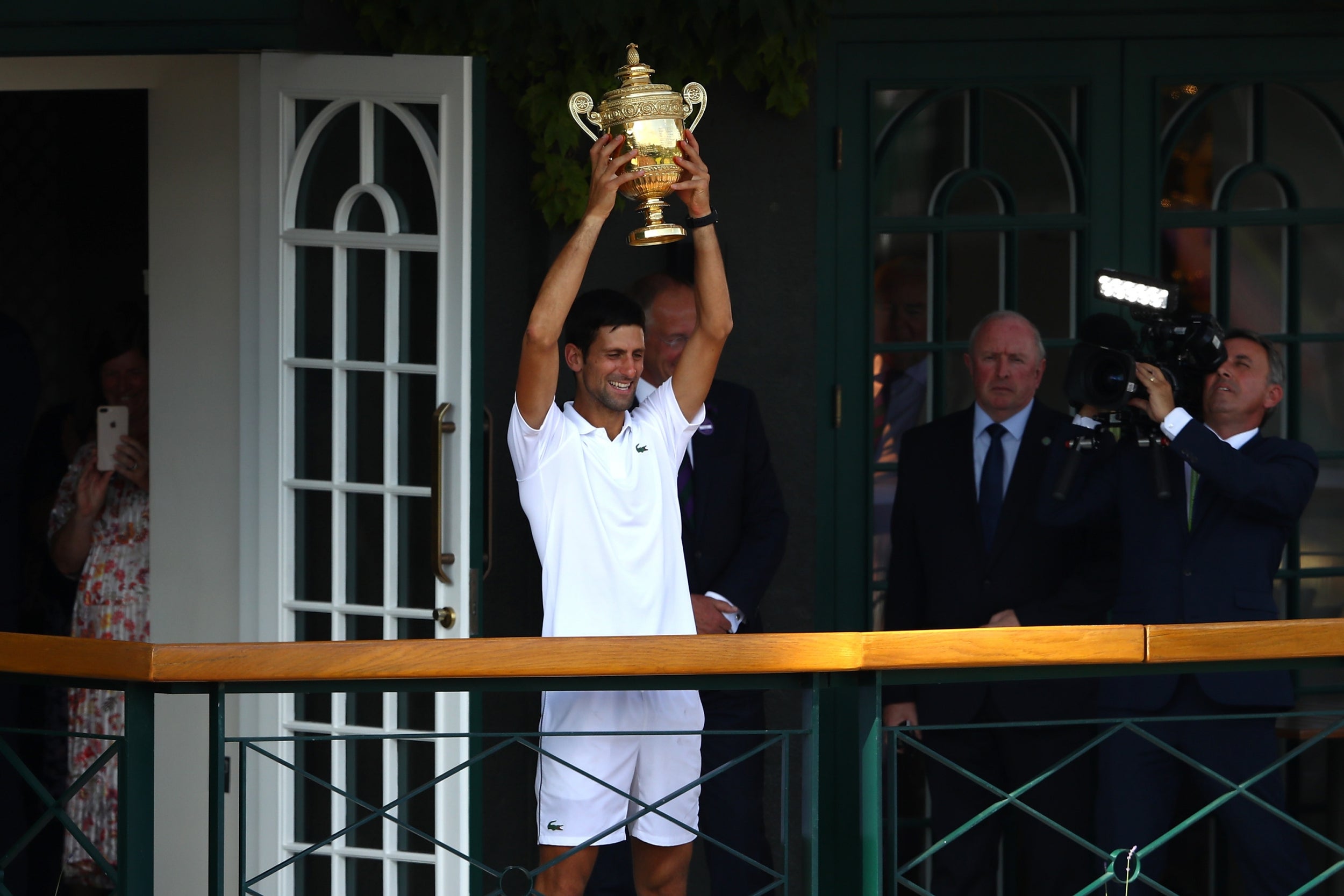Wimbledon 2018: Novak Djokovic humbles Kevin Anderson to win fourth SW19 title

Your support helps us to tell the story
From reproductive rights to climate change to Big Tech, The Independent is on the ground when the story is developing. Whether it's investigating the financials of Elon Musk's pro-Trump PAC or producing our latest documentary, 'The A Word', which shines a light on the American women fighting for reproductive rights, we know how important it is to parse out the facts from the messaging.
At such a critical moment in US history, we need reporters on the ground. Your donation allows us to keep sending journalists to speak to both sides of the story.
The Independent is trusted by Americans across the entire political spectrum. And unlike many other quality news outlets, we choose not to lock Americans out of our reporting and analysis with paywalls. We believe quality journalism should be available to everyone, paid for by those who can afford it.
Your support makes all the difference.After a Wimbledon notable for the shocking defeats of so many leading players, the 132ndedition of the world’s oldest and most famous tournament produced a finish in keeping with its traditions. The best of the best have a habit of coming out on top at the All England Club and in winning his fourth Wimbledon title Novak Djokovic underlined his status as one of the greatest players in history.
Djokovic, who beat South Africa’s Kevin Anderson 6-2, 6-2, 7-6 in a disappointingly one-sided final, was playing in his first Grand Slam final since the 2016 US Open. The 31-year-old Serb, who has now won four of his five Wimbledon finals, put behind him the injury doubts, off-the-court problems and issues of confidence and motivation that had dogged him for the last two years to remind us that he is one of the most complete players ever to wield a racket.
The victory took Djokovic into an elite group of just five players who have won the Wimbledon men’s singles title four or more times in the last 100 years. Roger Federer heads that list with eight titles, followed by Pete Sampras with seven, Bjorn Borg with five and Djokovic and Rod Laver with four each.
In winning his 13thGrand Slam singles title Djokovic claimed sole ownership of fourth place on the men’s all-time list behind Federer (20 titles), Rafael Nadal (17) and Sampras (14), while his victory also maintained the remarkable grip of the game’s “Big Four” on the title here. In the 16 editions of the Championships since Lleyton Hewitt’s triumph in 2002, the title has been won only by Federer, Nadal, Djokovic and Andy Murray.
As the world No 21 Djokovic is the lowest ranked player to win this title since Goran Ivanisevic (world No 125) in 2001. Having topped the world rankings for a total of 223 weeks, Djokovic dropped out of the top 20 earlier this year. He had taken off the last six months of 2017 after retiring from his quarter-final here last summer with an elbow injury, for which he eventually had surgery in January.
Djokovic started to show signs of his old form towards the end of the clay-court season and has played better and better through this grass-court campaign. He will return to the top 10 in Monday’s updated world rankings list.

Anderson made a fight of things in the third set, but the 32-year-old South African appeared to pay the price for his physical exertions in his two previous matches and especially his victory after six and a half hours over John Isner in the semi-finals.
The world No 8, who had never gone beyond the fourth round in his 10 previous appearances here, had been aiming to become the first South African to win the men’s singles title here and was the first of his countrymen to reach the final since Brian Norton in 1921.
However, Anderson never found the serving rhythm which had brought him 172 aces in his first six matches – he added only 10 more in the final – and in the first two sets in particular he seemed reluctant to move forward. With Djokovic on the other side of the net, there was only ever going to be one winner of most of the baseline rallies.
One consolation for Anderson will be the fact that he was clearly the man that the Centre Court crowd wanted to win. He may not have the most elegant of games, but he has endeared himself to the fans with both his remarkable resilience and his humility. After beating Isner in the longest match in Centre Court history Anderson’s first thoughts were for his beaten opponent.
Djokovic, for all his brilliance and success here over the years, has never won over crowds in the way that Federer and Nadal have. In the third round the Serb complained that Centre Court spectators had been “slightly unfair” towards him during his victory over Kyle Edmund and in the final he did not endear himself after appearing to swear at the crowd for making noise in the middle of a point.

There were big cheers when Djokovic missed a backhand to lose the first point of the match, but from that moment onwards things went downhill for Anderson. A loose backhand saw the South African go break point down and he followed that with a double fault. Djokovic broke again in the fifth game and served out for the opening set in just 29 minutes.
There was no shift in momentum in the second set. Once again Djokovic broke serve in both the first and fifth games and it was not until the Serb served for the set at 5-2 that Anderson had his first break point. Djokovic converted it in typical fashion, grinding his opponent down with the relentless consistency of his ground strokes. Two points later an unreturned serve gave Djokovic the set.
At the start of the third set, however, Anderson finally held serve in the opening game and as the match wore on he found some confidence. The South African served with more power and accuracy, hit his ground strokes with more conviction and showed a greater willingness to attack the net.
At 4-3 Anderson had his second break point, only to hit a backhand long. Djokovic’s relief was evident as he roared in celebration after serving out for 4-4, but two games later the Serb was in trouble again. Serving at 4-5, he hit three double faults and had to defend two set points before levelling at 5-5.
There was more of the same when Djokovic served at 5-6. This time Anderson had three set points but Djokovic, serving brilliantly, saved each of them.

Anderson had been reluctant to come into the net and in the tie-break you could understand why. Serving at 1-2 after the first three points had gone with serve, he charged forward on the next two and lost them both.
At 2-5 his netted forehand gave Djokovic four championship points. Anderson saved the first of them with a smash but on the second he put a forehand return in the net.
After embracing Anderson, Djokovic looked to the skies before bending down to tear off some blades of grass and put them in his mouth. It was not the first time the Serb has done so after a Wimbledon triumph and may well not be the last, but the grass will surely never have tasted sweeter for him.
Join our commenting forum
Join thought-provoking conversations, follow other Independent readers and see their replies
Comments